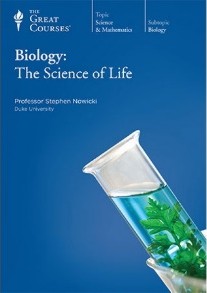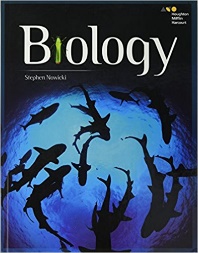Duke courses currently taught:
Bio 89S: How Organisms Communicate (1st-year seminar)

|
Language is often cited as a unique characteristic of Homo sapiens, something that that sets us apart from other animals. But how unique is human language? How do organisms other than humans communicate and what do they have to say? This course explores the communicative world of animals, from the simplest chemical signals used by slime molds when they aggregate to the complex communication behavior of birds, whales and primates—including humans. This class is not just for scientists; anyone with an interest in how the natural world relates to the human condition will find it a useful multidisciplinary exploration of how one organism may affect the behavior of another. Students prepare for class sessions using readings, video lecture segments, and other multimedia materials, with class time reserved for team-based discussion. Other activities include demonstrations, presentations, reading and interpreting primary scientific literature, and short writing assignments. |
Bio/Neuro 268D: Mechanisms of Animal Behavior

|
This course examines proximate factors underlying the expression of behavior—that is, causal factors that influence when a behavior occurs and what form it takes—in the context of understanding how behavior enhances survival and reproductive success. The course is organized around common problems that organisms need to solve, such as extracting useful information from the environment, finding food, avoiding being eaten, communicating with other organisms, and determining when and with whom to reproduce. Using case studies as a framework, students learn how an integrative perspective that encompasses sensory biology, neurobiology, endocrinology, genetics, development, and functional morphology helps us understand how and why organisms behave the way they do. |
Biology for everyone!

|
Steve taught introductory biology at Duke from 1996 to 2003, ending this run when he took on administrative responsibilities as Dean of the Natural Sciences. Based on the popularity of that course, The Teaching Company asked him to produce a version for adult learners as part of its "Great Courses" series. The result is a set of 72 half-hour video lectures titled The Science of Life. These lectures were produced with adult learners in mind, but they've also been used extensively by high school students as an AP biology supplement. If you're interested, the course is available on DVD, CD, or through digital download from the publisher. But check out your public library first, where you might be able to borrow a copy for free. |

|
The success of the "The Science of Life" video series caught the attention of a Duke alum, then senior
science editor at a publisher wanting to produce an innovative new high school biology textbook, who
asked Steve to author that new text. First published in 2008 and now in its 3rd edition,
Biology
(Houghton Mifflin Harcourt, 2017), is used by 9th and 10th grade students across the country.
Most recently, Steve served as a senior consultant on a biology curriculum that conforms to the Next Generation Science Standards (NGSS) for high school science instruction. Check out HMH Science Dimensions if you're interested. |